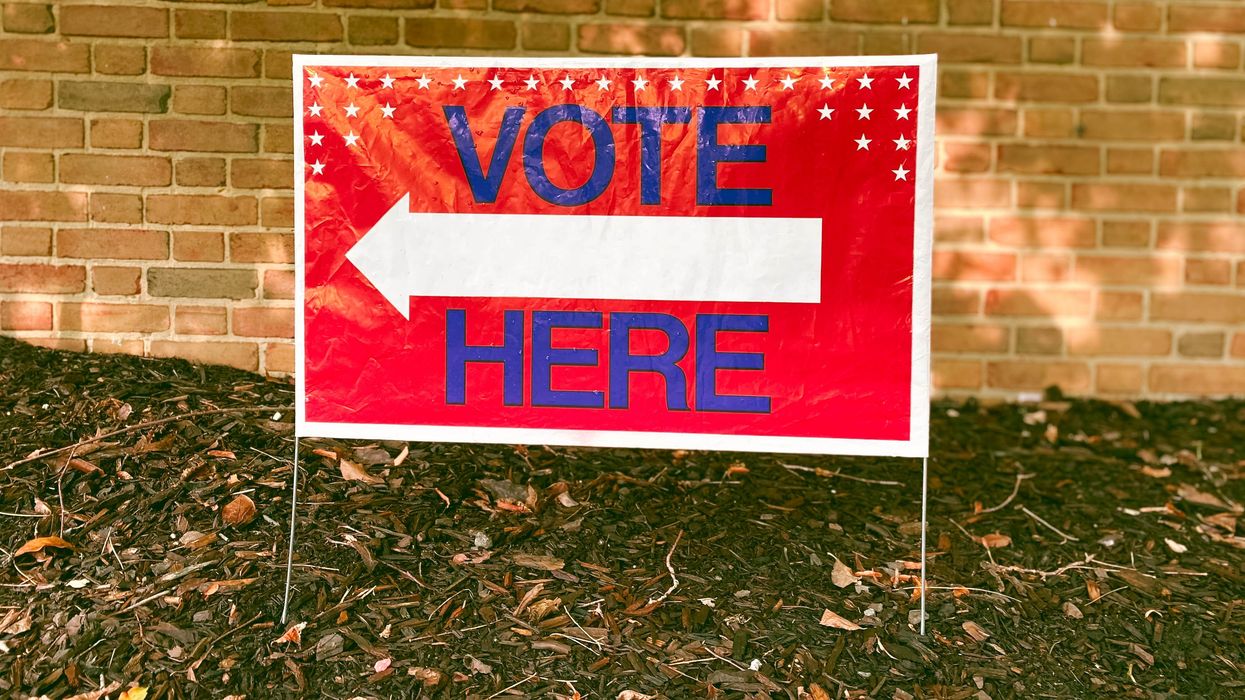Meyers is executive editor of The Fulcrum.
Three members of Congress are hoping to bring ranked-choice voting, which has been growing at the state and municipal levels, to congressional elections.
Rep. Jamie Raskin (D-Md.), Rep. Don Beyer (D-Va.) and Sen. Peter Welch (D-Vt.) on Thursday introduced the Ranked Choice Voting Act, which would change how all members of Congress are elected. In addition, the bill would authorize funding to assist states to help them educate voters and implement RCV-compliant systems for primary and general elections by 2028.
In an RCV election, voters may rank multiple candidates in order of preference. The candidate with the fewest votes is eliminated, with that person’s support redistributed to voters’ second choices. The process continues until a candidate has a majority of the votes or there are only two candidates remaining.
Supporters believe this process, in addition to guaranteeing the winner has majority support, reduces partisanship because candidates need to appeal to voters beyond their party base in order to attract second- and third-place votes.
“In an increasingly polarized Congress, it’s become ever more difficult to produce pragmatic legislation and solutions that benefit the American people,” Beyer said. “By implementing ranked-choice voting, which ensures that winners are elected with majority popular support, we can encourage the election of leaders who build broad and diverse coalitions and are focused on solutions rather than divisive rhetoric. This would increase voter satisfaction and be a great win for a healthier democracy.”
Two states already use RCV for federal elections. Both Maine and Alaska use it in general elections, but Alaska’s general election follows an open primary in which all candidates run on the same ballot. The four candidates who receive the most votes, regardless of party, advance to November.
The legislation would give states some latitude on implementation.
“It’s permissive of both [the Maine and Alaska] types depending on what the state prefers,” said Deb Otis, director of research and policy for FairVote, a nonprofit organization that advocates for RCV and has played a central role in building support for the bill.
In a minor twist on RCV, the bill would continue the runoff process until there are two final candidates, rather than until one candidate has a majority of the votes.
“It’s a distinction without a difference,” said Otis. “It doesn’t change who wins … and provides some extra clarity on voter preference.”
Nearly 50 counties and cities use, or have approved use of, RCV for municipal elections, including New York, San Francisco, Minneapolis and a dozen cities in Utah.
Voters in Nevada, Oregon, Colorado and Idaho will decide whether to move forward with RCV in their states when they cast ballots this fall. A ballot initiative in Alaska seeks to repeal the 2020 voter initiative that instituted RCV elections.
The bill faces a difficult path in Congress. Lawmakers are only expected to be in session for a few more weeks before heading home to campaign in advance of Election Day, and those remaining work days will likely be devoted to spending bills and a handful of other matters. But more time might not make a difference.
RCV, despite being a nonpartisan solution to concerns about elections being won with less than a majority of support, tends to attract opposition from Republicans. And with the GOP controlling the House, the bill would face long odds even at the beginning of a congressional session. The same goes for the Senate, where most legislation needs to overcome a procedural hurdle that requires getting 60 votes in the nearly evenly divided, 100-person chamber.
“Obviously at FairVote we would love for all of our bills to pass this session. But we understand politics and it’s not likely,” said Ryan Suto, FairVote’s interim director of government affairs. “But it’s a time when a lot of people are talking about politics and voters are frustrated with their election system. So this is a good time to make sure this conversation continues. So people who don’t know about ranked-choice voting are reached.”
Other bills aiming to change elections have faced similar partisan roadblocks in recent years. Democrats have pushed comprehensive reform bills like the Freedom to Vote Act and the John R. Lewis Voting Rights Advancement Act. Neither made it through Capitol Hill, with Republicans often arguing that states have authority over election laws, not Congress.
But advocates of the new bill believe the Constitution is on their side.
“The Constitution's text is clear. The federal government many times in our history has found it necessary to regulate the time, place and manner of elections,” Suto said. “Everyone being on a level playing field, playing by the same rules, is important.”
Republicans have been pushing their own elections bill this year, one that would reiterate existing law that declares noncitizens may not vote in federal elections. Members of the House leadership planned to attach that bill to a spending bill that needs to be passed before the end of the month in order to avoid a partial government shutdown, but Speaker Mike Johnson (R-La.) pulled the appropriations measure from consideration Wednesday when it became clear he did not have the votes to pass it.




















